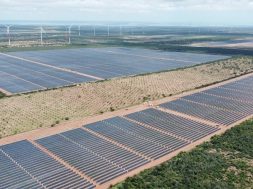
Government okays norms to set up charging infra for electric vehicles
The government aims to move 25% of the transportation to electric vehicles by 2030 in order to reduce air pollution with this step.
The government on Friday approved amendments to Model Building Bye-laws (MBBL), 2016 and Urban Regional Development Plans Formulation and Implementation (URDPFI) Guidelines, 2014, to set up charging stations for electric vehicles across the country, an official said.
With this, the government aims to move 25% of the transportation to electric vehicles by 2030 in order to reduce air pollution.
“The guidelines will act as a guiding document to the state governments and union territories to incorporate the norms and standards of electric vehicle charging infrastructure in their respective building bye-laws,” a spokesperson for the ministry of housing and urban affairs said.
“We have circulated the guidelines to all the states and UTs with the request to amend their building bye-laws and master plan regulations.”
The government permitted private charging at residences and offices. Public charging stations will be set up every 25 km on both sides of highways and roads. For heavy electric vehicles such as trucks and buses, at least one fast-charging station will be set up every 100 km. Charging facilities will also be available at bus depots and transport hubs within three years. In the first phase, to be completed by 2021, mega cities — with a population of over 4 million as per the 2011 census — will be covered.
Other big cities such as state capitals and union territories will come under the second phase, to be completed by
2023.
On December 14, the power ministry had issued guidelines for setting up charging infrastructure across the country’s major corridors. The move came against the backdrop of the government’s target of achieving full electric mobility by 2030.
“Ministry of Power’s guidelines have also been considered while making these amendments. Cities and towns in the country are facing the problems of environmental pollution thereby severely impacting the health of the urban residents,” the official said.
“India is committed to United Nations’ goal to take urgent action to combat climate change. Government has initiated several steps to reduce dependence on fossil fuels. One of such steps is to encourage environment-friendly electric cars,” the official added.
A meeting was held on Friday between the Fifteenth Finance Commission, chaired by power minister R K Singh and chairman, finance commission, N K Singh.
The ministry of power proposed to the commission a scheme for supporting switching to electric mobility in India – for rolling out EV infrastructure across 70 cities and 20% of highways in five years— by 2025 — at a cost of ~5,000 crore.















